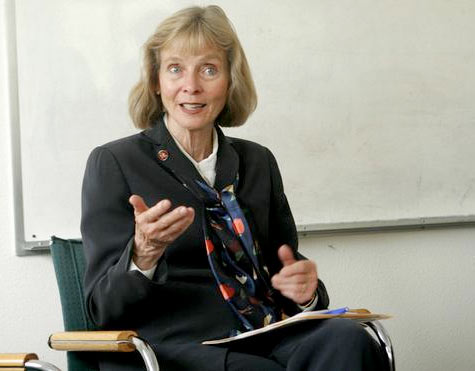Representative Lois Capps, a participant in a daylong national health care forum on March 5, said the U.S. has no choice but to reform the nation’s system. “The health care crisis is so deep and widespread,” she said. “It has been building for a long time.” Capps joined President Barack Obama and approximately 150 others to debate ideas on how to overhaul the world’s most costly medical system, which leaves more than 46 million people uninsured.
Obama, whose goal is to implement reform legislation by the year’s end, stressed that the increasing cost of health care imperils not just the well-being of U.S. citizens but also the country’s economic prosperity. Gathering in the East Room of the White House, the President, members of Congress, and stakeholders, including health care workers, business leaders, and representatives of insurance and pharmaceutical companies, discussed how to reduce costs, improve the quality of care, and expand access to coverage.

Although efforts to reform health care in this country have failed over the past decades, Capps is optimistic that a restructuring of the system will occur under the Obama administration. “Obama has made it one of his tasks to learn from past mistakes,” she said.
Traditionally, presidential administrations have taken a closed-door, Washington D.C.-based approach to health care reform. For example, during the last major reform effort 15 years ago, the Clinton administration allowed little input from members of Congress or stakeholders. Obama, on the other hand, has made it a prerogative to have interests from all sectors, including citizens from across the nation, be an integral part of the process.
“President Obama, as a candidate, talked to people in the communities around the country and asked for people’s ideas on what reform they would like to see,” Capps said. “He took ideas from every nook and cranny.” Capps herself hosted one of Obama’s “Health Care Community Discussions” in Santa Barbara. Obama’s campaign assembled the ideas generated in the Health Care Community Discussions into a report, which Capps called “a symbol of how this reform is specifically what people want and need in health care reform.” The report contains a mix of ideas for Congress to build on when crafting the reform legislation. Obama intends to present Congress with broad principles that he wants to see in the final health care reform bill, but members of the House and Senate will provide the details.
Personally addressing the President about the national nursing shortage in the wrap-up session, Capps said she was moved by Obama’s receptiveness to trying to solve the problem. A former nurse, Capps underscored the vital role of nurses in the health care system. “Nurses provide quality care at a lower cost,” she said. Currently, almost half a million nursing positions are open around the country. To quell the nursing shortage, Capps advocates increased funding for nursing schools. She said nursing programs, such as the one at Santa Barbara City College (SBCC), cannot hire enough faculty to increase enrollment significantly.

“Every school in the state has a wait list or turns away students,” said Sheri Shields, director of the associate degree in nursing program at SBCC. According to Shields, nursing schools, especially in the State of California, rely heavily on outside funding such as industry partners to help defray some of the costs of the programs. For example, the nursing program at SBCC partners with and receives grant money from Cottage Hospital. But nursing programs are expensive to run and, due to lack of funding, the number of slots available has not kept up with the increased demand.
Capps was also impressed by Obama’s commitment to invest in preventative care. In Santa Barbara, Women, Infants and Children (WIC), a federally funded program administered by the Santa Barbara County Public Health Department, provides low-income pregnant women and children under the age of five with nutrition education and services. Ensuring proper nutrition and prenatal care improves the health of infants and children. Capps said that these types of services do not cost very much and that by investing in them, health care costs go down.
The White House Health Summit was only the first of a series of meetings to convene on health care reform. Obama plans to hold more forums on health care outside Washington, D.C.



